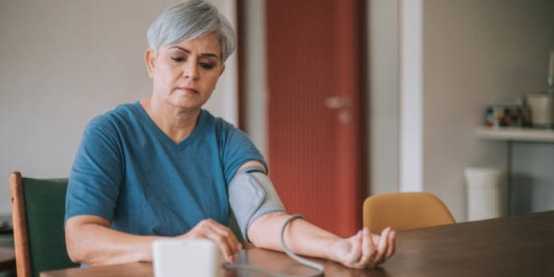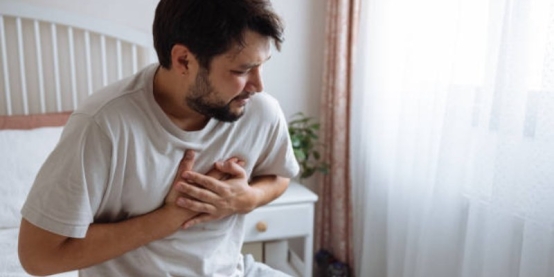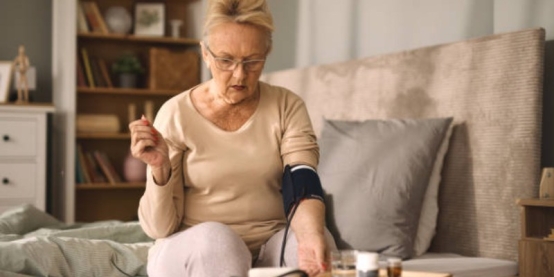How to Manage High Blood Pressure in Seniors
High blood pressure, also called Hypertension, is one of the most dangerous health problems among seniors. Many older adults live with this condition without knowing it, because it often has no apparent symptoms at first. But over time, uncontrolled blood pressure can lead to serious issues such as stroke, heart disease, kidney failure, and even problems with memory and thinking.
Why Seniors Are More Prone to High Blood Pressure
Seniors are at a higher risk due to changes in their blood vessels that occur with age. Arteries may become stiffer, the heart may work harder, and this can lead to a gradual increase in blood pressure over time. In many cases, lifestyle choices made earlier in life—such as diet, physical activity level, and smoking habits—can also play a significant role.

Blood pressure is measured using two numbers: systolic (the top number) and diastolic (the bottom number). According to the American Heart Association, normal blood pressure is defined as less than 120/80 mmHg. Readings above this range may need attention, especially in older adults.
Choosing a Heart-Healthy Diet
Diet is one of the strongest tools for managing blood pressure in seniors. Meals high in salt, sugar, and unhealthy fats can increase blood pressure. Seniors should eat more fruits, vegetables, whole grains, and lean proteins. Foods rich in potassium, such as bananas, spinach, and sweet potatoes, help balance the effects of salt in the body.
The DASH diet—short for Dietary Approaches to Stop Hypertension—is often recommended by doctors for people with high blood pressure. It focuses on low-sodium meals, healthy fats, and plenty of plant-based food options. Reducing the amount of processed food is also key, as many frozen dinners, canned soups, and snacks are high in sodium.
High blood pressure is also linked to high cholesterol, so reducing fried foods and full-fat dairy products can support overall heart health.
The Importance of Regular Exercise
Being active is very important, especially for seniors. Simple exercises, such as walking, stretching, swimming, or gentle Yoga, can help keep the heart strong and naturally lower blood pressure. Movement helps blood flow better and reduces stiffness in the arteries.
Many seniors may feel weak or tired, but even 20–30 minutes of daily movement can make a significant difference. If walking outside is hard, try walking indoors or joining a local senior activity group. Exercise also improves mood, reduces Stress, and helps with sleep.
According to the CentresCentres for Disease Control and Prevention, physical activity not only lowers blood pressure but also helps people manage their weight and prevent other chronic conditions, such as diabetes.

Staying on Top of Medication
Many older adults need to take medicine for high blood pressure. These medications help the heart pump blood more easily or relax the blood vessels. It's essential to take medication exactly as prescribed and not skip doses.
Doctors might change the type or amount of medicine over time, especially if blood pressure changes or side effects occur. Some seniors may take water pills (diuretics), ACE inhibitors, beta blockers, or other medications. Each works differently and may need to be combined with other treatments.
Family members or caregivers can help by reminding seniors to take their medications daily. Pill organisers and medication tracking apps can also be helpful, especially for those who take several pills each day.
Avoiding Hidden Causes of Blood Pressure Spikes
Some daily habits may exacerbate high blood pressure without people realising it. These include:
Caffeine: Too much coffee or energy drinks can raise pressure levels quickly.
Alcohol: Regular drinking may weaken the heart and raise blood pressure.
Smoking: Even secondhand smoke can damage blood vessels and increase the risk.
Cold medicines: Some over-the-counter medications, such as decongestants, may increase blood pressure.
Seniors should consult their doctor before using any new medication, even for common colds or allergies. It's easy to forget that some "simple" drugs may interact with blood pressure treatments.
Tracking Blood Pressure at Home
Home blood pressure monitors are helpful for seniors who need to check their blood pressure readings regularly. These devices are easy to use and give quick results. A health professional can demonstrate how to use them properly, including when to sit, how to place the cuff, and how to record the numbers.
Keeping a small notebook or digital log can help track changes over time. This can help doctors adjust treatment if needed. Blood pressure tends to fluctuate throughout the day, so it's best to check at the same time each day.
Choosing a machine that’s approved by groups like the U.S. Food and Drug Administration makes sure it meets safety standards.
Getting Enough Sleep and Managing Stress
Poor sleep and high Stress both affect blood pressure. Seniors often face problems like insomnia, sleep apnea, or feeling worried. These conditions can cause blood pressure to go up, especially at night.

Good sleep habits include turning off screens before bed, avoiding heavy meals in the evening, and keeping the bedroom cool and dark. Some seniors may need to be tested for sleep disorders, such as sleep apnea, which can affect Breathing and increase blood pressure levels.
Deep Breathing, talking to a friend, reading, or listening to music can also help calm the mind. In some cases, a counsellor or therapist may be helpful, especially if the person frequently feels sad or overwhelmed.
Getting Regular Health Checkups
Managing high blood pressure in seniors is not just about watching the numbers. It involves full-body care. Regular doctor visits help catch changes early. Blood and urine tests, eye exams, and heart checks can all show how well the body is doing.
Sometimes, high blood pressure is caused by another underlying medical condition, such as thyroid issues or kidney disease. These need special care. Seniors should never change their treatment plan without talking to their doctor first.
Caregivers or family members should also look for signs such as chest pain, dizziness, swelling, or sudden fatigue. These may show that the condition needs more urgent care.
Supporting Seniors in Everyday Life
Helping seniors with high blood pressure means more than just reminding them to take their pills. It involves cooking healthy meals, planning time for walks, and being patient with their needs. Stress-free environments and steady routines also help.
Even when money is tight, there are free or low-cost programs available in many areas. Some local health centres offer nutrition classes, walking groups, or low-cost medical care. Consulting with a local social worker or health office can help connect families with valuable resources.
Sources